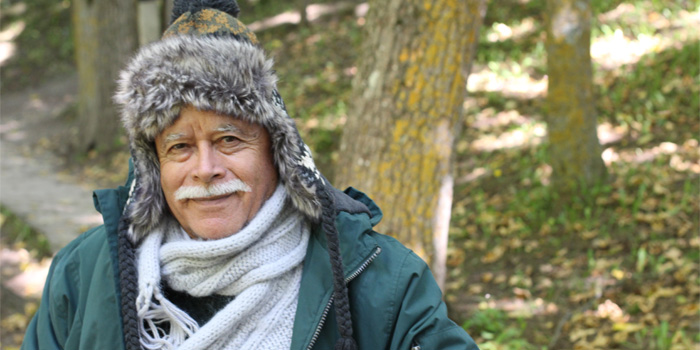Plan Ahead for Bad Weather.
If your senior lives where snow and ice are a probability you should obviously plan for it. Make sure shovels, salt and sand are easily available when you need them. It is a challenge to locate them sometimes when the weather is already upon you. This should include ice scrapers and starting fluid, too.
Also important is to prepare for a power-outage. Inclement weather can create situations where power is lost and being able to easily put your hands on emergency alternatives is critical. This would include items like flashlights, batteries, potable water, non-perishable foods and an extra supply of necessary medications.
Stock the Pantry.
Speaking of non-perishable foods, keeping them in stock is a good practice to maintain year-round, but particularly in the wintertime. Whether you cannot leave the house due to the weather or you lose power, it is beneficial to have a broad selection of healthy canned goods and other non-perishables on hand. Canned fish such as tuna, sardines or mackerel are good sources of protein as well as canned beans. Prunes contain a lot of vitamin C and fiber. You can get essential vitamins and nutrients from low-sodium soups and other canned vegetable, too. And, stock up on bottled water. Don’t forget the electric can opener may not be very useful without power. Have a manual can opener on hand, just in case.
Check the Closet.
Assure that your senior also has plenty of warm clothing to be comfortable in cold weather. Some winter clothing may not have been used or inspected during the warmer months Check sweaters and jackets to make sure they are without holes and in a condition to keep a senior securely warm. Investing in some all-weather boots with rubber soles that are slip-resistant will keep your senior safer in icy conditions.
Smoke Detector Check-up.
The old adage that you should check your smoke detector batteries each time there is a change in daylight savings worked fine until the length of Daylight Savings stretched to almost nine months. That makes the winter check-up even more important if you use that schedule. It is even more critical to have smoke detectors up to snuff in the winter months when space heaters and other potential hazards like holiday lights and the use of fireplaces are more frequent. If you have carbon monoxide monitors, check their batteries, too.
Check that Chimney.
If the house has a fireplace that is used with any regularity, it is critical to make sure the chimney is cleared out. Creosote build-up is the cause of thousands of house fires each year. And, fire danger aside, the creosote can create a buildup of toxic chemicals that can engender illness. It can also contribute to excessive carbon monoxide in the home.
Set aside some time now to take care of the few extra things that can ensure the safety and health of your senior this winter. Be prepared when an emergency occurs.

